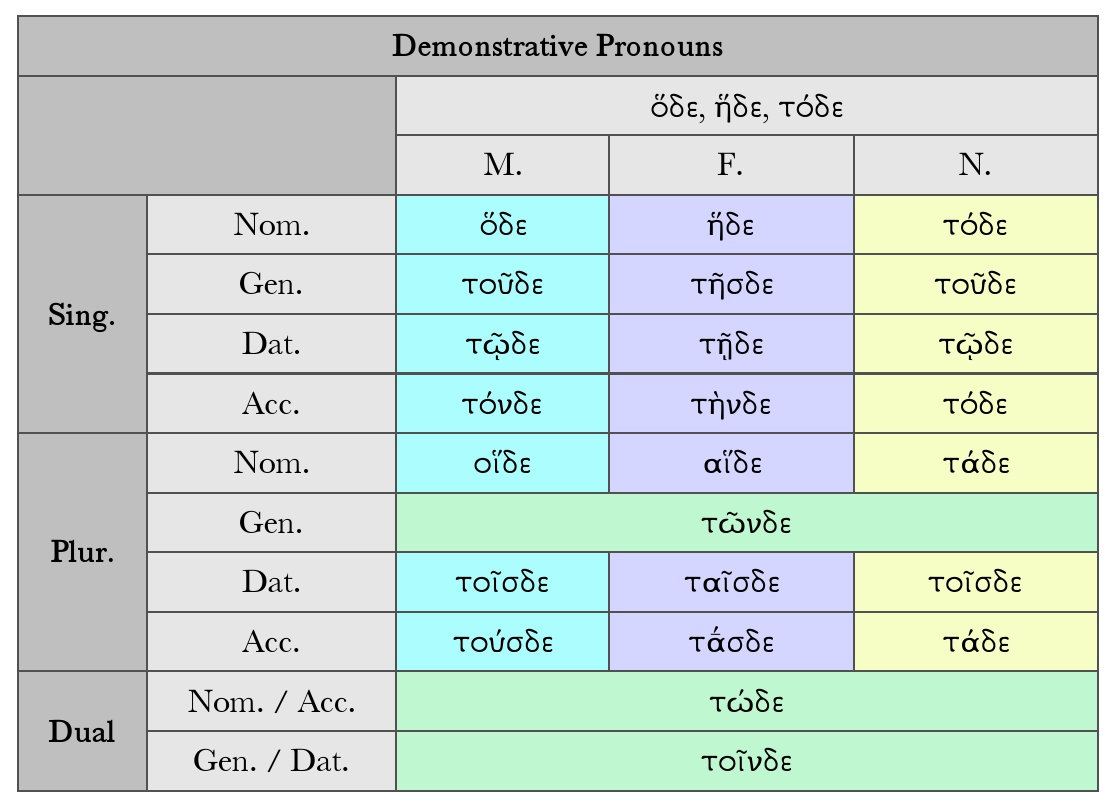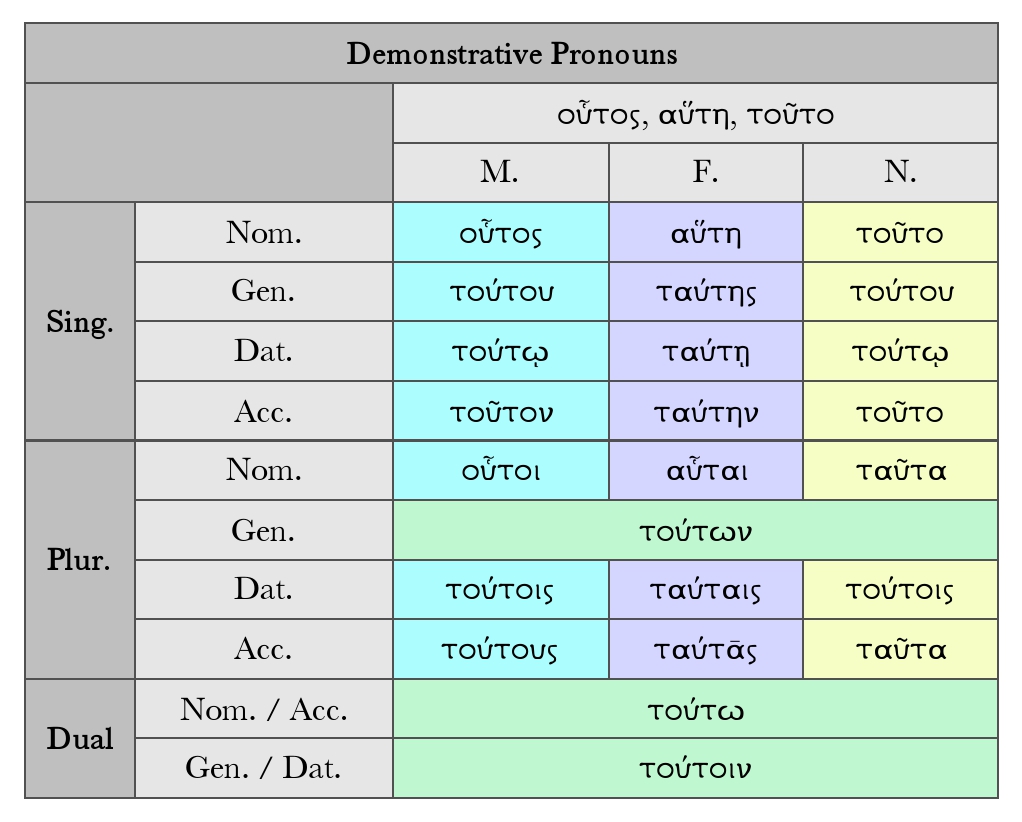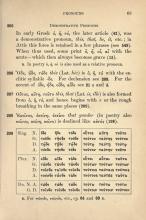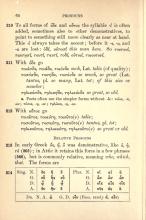205. In early Greek ὁ, ἡ, τό, the later article (§ 61), was a demonstrative pronoun (this, that, he, it, etc.); in Attic this force is retained in a few phrases (see § 549). When thus used, some print ὅ, ἥ, οἵ, αἵ with the acute— which then always becomes grave (§ 15).
a. In poetry ὁ, ἡ, τό is also used as a relative pronoun.
206. Ὅδε, ἥδε, τόδε (this; Latin hic) is ὁ, ἡ, τό with the enclitic syllable -δε. For declension see § 209 (below). For the accent of ὅδε, ἥδε, οἵδε, αἵδε see § 21.c-d.
207. Οὗτος, αὕτη, τοῦτο (this, that; Latin is, ille) is also formed from ὁ, ἡ, τό, and hence begins with τ- or the rough breathing in the same places (§ 209, below).
208. Ἐκεῖνος, ἐκείνη, ἐκεῖνο (that yonder; in poetry also κεῖνος, κείνη, κεῖνο) is declined like αὐτός (§ 198).
209.
a. For τοῖσιδε, ταῖσιδε, etc., cp. § 64 and § 69.c.
210. To all forms of ὅδε and οὗτος the syllable -ῑ́ is often added, sometimes also to other demonstratives, to point to something still more clearly as near at hand. This -ῑ́ always takes the accent; before it -ε, -ο, and -α are lost.
ὁδῑ́, οὑτοσῑ́ this man here
So τουτουῑ́, ταυτησῑ́, τουτῑ́, ταυτῑ́, τοδῑ́, οὑτοιῑ́, τοιουτονῑ́.
211. With ὅδε go:
| τοιόσδε | τοιᾱ́δε | τοιόνδε | such [Latin talis (of quality)] |
| τοσόσδε | τοσήδε | τοσόνδε |
so much, so great |
| τηλικόσδε | τηλικήδε | τηλικόνδε | so great, so old |
a. Poets often use the simpler forms without -δε.
τοῖος, -ᾱ, -ον
τόσος, -η, -ον
212. With οὗτος go:
| τοιοῦτος, | τοιαύτη, | τοιοῦτο(ν) | [Latin talis] |
| τοσοῦτος, | τοσαύτη, | τοσοῦτο(ν) | [Latin tantus, pl. tot] |
| τηλικοῦτος, | τηλικαύτη, | τηλικοῦτο(ν) | so great or old |




